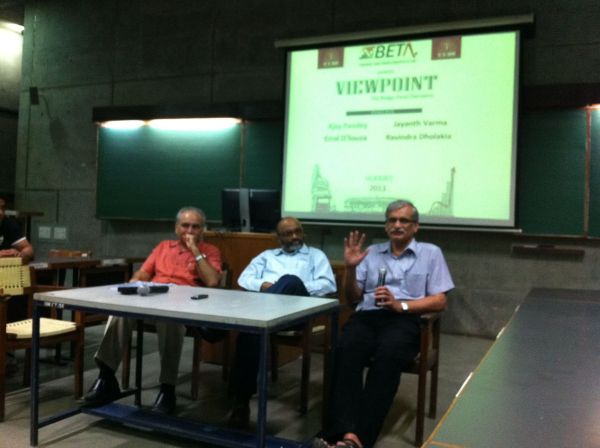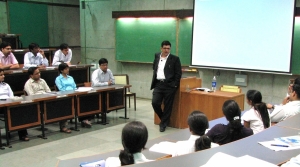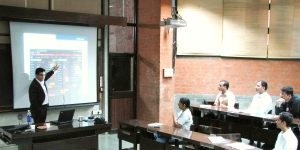The Indian Institute of Management’s finance and investments club – Beta organized Viewpoint – a panel discussion on this year’s union budget on Tuesday the 5th of March, 2013 at the institute’s campus. The discussion saw distinguished faculty, from the areas of economics and finance get together to air their views and opinions on the subject. The faculty trio that chaired this event were Prof Errol D’Souza, Prof Ravindra Dholakia and Prof Jayanth Verma.
Prof Errol D’Souza was fairly happy with the budget presented by the FM considering that India is suffering from a high fiscal and current account deficits coupled with economic inequalities and rampant corruption. He went on to say that using expenditure by way of cash transfers which are less corruption prone shows that it wants to move towards a more transparent system. Prof D’Souza also believes that government can contribute to the reining in of inflation by reducing the fiscal deficit and by reducing subsidies on public utilities and petroleum. The government’s revenues can be shored up by measures that are growth promoting such as increasing the climate for investment.
The next speaker on the panel was Prof Dholakia, in his opinion the FM had identified the right symptoms but the diagnosis was flawed. The FM addressed slowdown in savings as a key concern – but erroneously thinks that the slowdown is in household savings instead of public sector savings and corporate savings. Also the FM was of the opinion that the problem of slow growth rate can be effectively tackled by investments, Prof Dholakia believes that this will not solve the problem, instead the actual issue is capacity underutilization, which can be solved by sanctioning of projects in the pipeline. He was also of the view that the fiscal deficit might have been understated due to underestimation of the expenditure involved in the Food Security Bill and overestimation of non-tax revenue.
The final speaker on the panel was Prof Jayanth Verma who spoke extensively on the problem of capital flight. According to Prof Verma households expecting double-digit inflation are investing in non-financial inflation hedged assets and commodities such as gold. Many business groups are investing more money outside India than in India. Also FIIs have become a major source for funding the current account deficit but are subject to abnormal taxation laws, the FM has in his budget not addressed the issue of improper taxation of both FDI and FIIs.
The discussion held the audience enthralled and was concluded with a lively Q&A session. The third edition of the series well received by an enthusiastic audience comprised of not only students of the flagship PGP programme but also the PGP-Agri-Business Management, Fellow Programme in Management and the Armed Forces and PGP Executive programmes.









